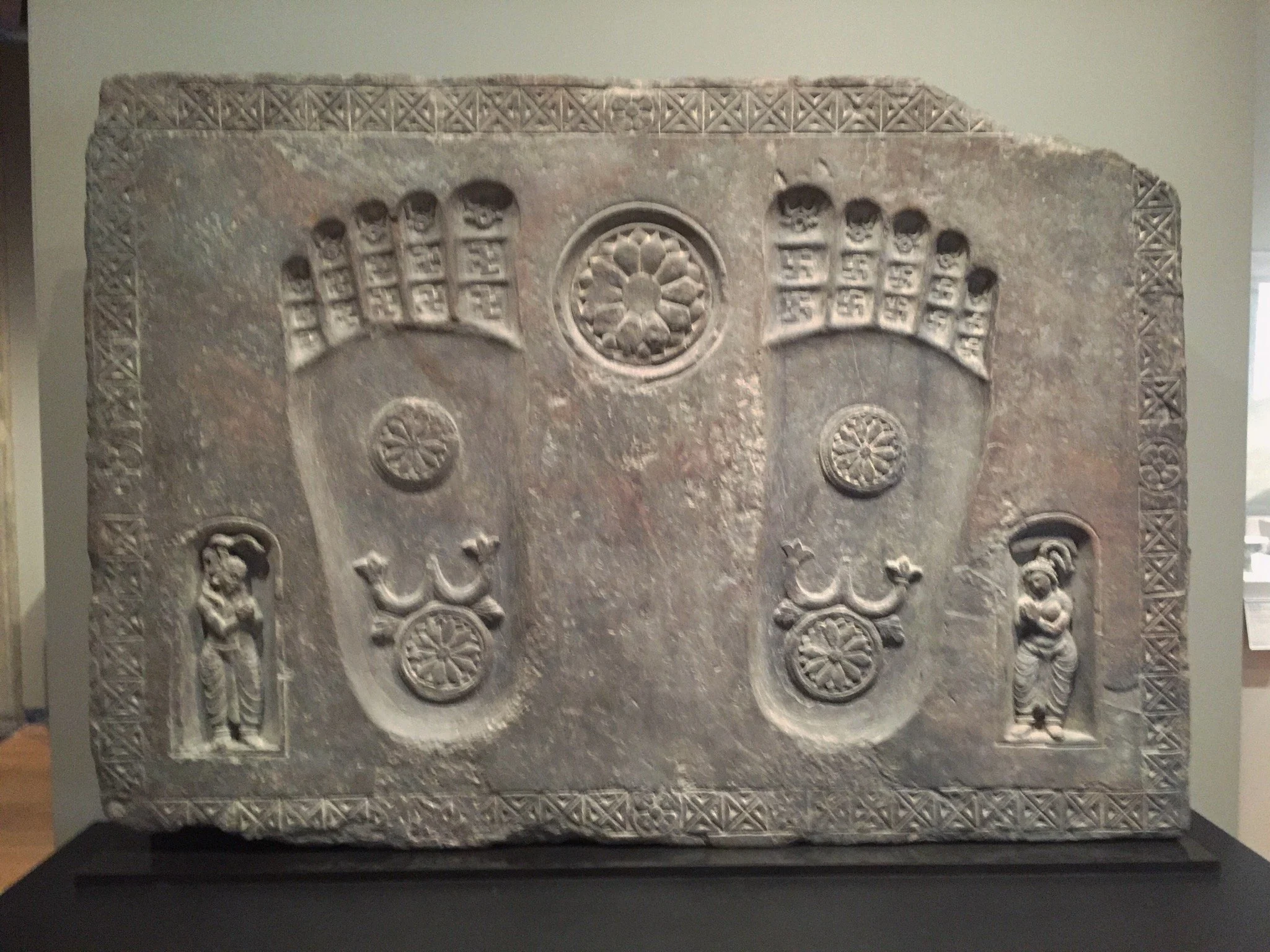One of the main themes of The Diamond Sutra refers to the merit that may be gained from reading or chanting it. This may seem like circular reasoning, yet one can find similar statements in The Heart Sutra, The Shurangama Sutra, Lotus Sutra; there are supposedly 84,000 Buddhist texts available for study, and most similarly point to how a focus on the texts of the Sutras will generate merit that will help the Bodhisattva in her quest to help all beings.
I think the very first kongan we must deal with in Zen is right there in the original gatha from Bodhidharma: the paradox that, while Zen is “a special transmission outside the scriptures” we do rely on studying and chanting scriptures, and the scriptures themselves tough their own uses as vehicles for awakening.
I think Zen is pointless unless it is a living Zen, unless the teachings makes sense to you in your life; so you test the teachings against your experience, and vice versa. Obviously, for that to happen, we need to know what Zen is. Not what we think it is, or in how we create our own versions, but what it is. Mind-to-Mind transmission doesn’t mean anything if we continue in Zen study only with our own mind. Aside from checking our understanding with that of the insights of the Teachers of the past, scriptures ground us in the understanding that Zen is grounded in Buddhism, a path that has worked and will continue to work, as long as you don’t call whatever you are doing “Zen” and think you are right. By all means, follow any path you choose, but if you choose the path of Zen there are a lot of folks who have paved the route. Bliss, peace of mind, minimalism, simplicity—these are byproducts, not, goals or promises, that one can experience with a dedicated practice.
I never say anything especially insightful; sharing the dharma is sharing the teachings, not my own intellectual virtuosity.
In this way, Zen is always new, even when it is the same old thing.
See?
I just made it new.
You do too.
The virtuosity comes in living Zen, in the performance of the ordinary, daily, 10,000 things. One of Zen Master Seung Sahn’s teaching story, “Buddha is Grass Shoes,” featuring one of our favorite underdogs, Sok Du, which means “Rock-Head,” so named at his ordination due to his struggle understanding the Dharma.
Reminiscent of that other thick-headed, well-meaning ancestor, Ananda, Sok Du finds that the understanding of the path is just beyond him, despite his zeal. He is encouraged to study the Sutras—he can’t understand them. He is moves to a monastery focused primarily on meditation—he can’t get comfortable. He is eventually given a Kung-an to wrestle with, and you can guess where that goes. In exasperation, he finally went to a Master and said, “What is Buddha?” The Master replied, “Buddha is Mind” (Juk shim shi bul).” Yet Rock-Head had trouble with direct instruction too, and misheard the reply as “Buddha is Grass Shoes" (Jip shin shi bul).
He chewed on that one for a long time, and one day, he was walking in the woods, tripped and his grass shoes fell off and broke in half on hitting the ground. We are told that through this, he finally understood. Of course! Buddha is Grass Shoes!
He went back to that master to check his understanding. When asked to demonstrate that insight, he smacked the master on the head with a piece of his broken shoe. “Is that it?” the master asked.
“No! All my grass shoes are broken!” Seung Sahn relates that the master was moved to tears and told Sok Du that he had finally come to know the Buddha.
This story alludes to the Sudden/Gradual approaches to Zen insight, explained so elegantly by Seon Master Jinul. Did Sok Du then return to the sutras, to meditation and kongan study, gifted with new insight and aptitude to understand skillfully? Probably not, at first, though his living insight surely gave him doorways into the teachings that he had lacked.
We return to the original paradox: Why study scriptures if we are instructed to seek our own understanding directly through our own effort and in our own lives? The masters left us maps to guide the way, which we can either accept or reject according to our experience. But truly to study Zen is to see the scriptures as part of our experience. To chant or read them aloud is bringing them, living, into those daily experiences that lead to our understanding. For you, they are never dead until you are.
